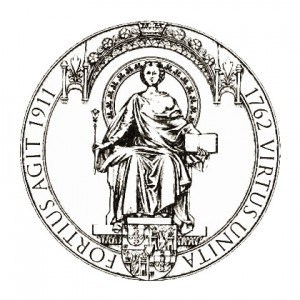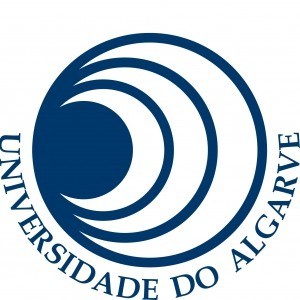Photos of university / #uporto
Management and Economics of Innovation at the University of Porto offers a comprehensive and interdisciplinary curriculum designed to prepare students to lead and manage innovation processes within various organizations and industries. This program combines theoretical knowledge with practical skills, focusing on the strategic, economic, and managerial aspects of innovation, entrepreneurship, and technological development. Students will explore topics such as the principles of innovation management, the economics of technological change, intellectual property rights, innovation policy, and the entrepreneurial process. The program emphasizes the development of critical thinking, problem-solving, and analytical skills, enabling graduates to assess innovation opportunities, design new business models, and implement effective strategies to foster innovation-driven growth. Through a combination of lectures, case studies, group projects, and internships, students will gain hands-on experience that prepares them for careers in dynamic environments where innovation plays a crucial role. The program is tailored for individuals aiming to work in technology companies, research institutions, public policy agencies, or start-ups, providing them with the knowledge and competencies necessary to support sustainable economic development through innovation. The curriculum is regularly updated to reflect current trends and challenges in the global innovation landscape, ensuring that graduates remain competitive in an ever-changing economic environment. With access to the university’s extensive network of partners and industry collaborators, students can engage in real-world projects and build valuable professional relationships. Graduates of the Management and Economics of Innovation program will be equipped to contribute effectively to the strategic planning and execution of innovation initiatives, making a significant impact in both the private and public sectors. Overall, this program offers a unique opportunity to understand the complex mechanisms of innovation management and economic policies, fostering a new generation of leaders capable of driving technological progress and economic development.
The Economics and Management of Innovation program at the University of Porto offers students a comprehensive education focused on understanding the complex relationship between economic principles and innovative management practices. This program is designed to prepare students to analyze and develop strategies that foster innovation within various organizational contexts, contributing to economic growth and competitive advantage in a rapidly changing global environment. Throughout the curriculum, students engage with core topics such as microeconomics, macroeconomics, and econometrics, providing a solid foundation in economic theory and quantitative analysis. Complementing these are specialized courses in innovation management, entrepreneurship, technology transfer, and strategic planning. The program emphasizes the importance of creativity and technological development in driving economic progress, encouraging students to explore how technological advancements impact markets and industries.
Students also learn about the management of research and development (R&D) activities, intellectual property rights, and the commercialization of innovations. Practical experience is integrated through case studies, project work, and internships, which allow students to apply theoretical concepts to real-world situations. The program stresses the development of key skills such as strategic thinking, problem-solving, and effective communication, preparing graduates for careers in consulting, innovation management, policy development, and entrepreneurial ventures. Moreover, the curriculum promotes an interdisciplinary approach, blending economic analysis with management science, to provide a holistic understanding of how innovation influences business dynamics and economic ecosystems. Graduates of this program will be equipped to contribute to the development of innovative solutions, support sustainable economic development, and lead transformative initiatives across diverse sectors. The program is delivered by faculty members with extensive research expertise and industry experience, ensuring that students receive instruction rooted in current trends and practices in the fields of economics and innovation management.
The Bachelor’s degree program in Economics and Management of Innovation at the University of Porto is designed to provide students with a comprehensive understanding of economic principles and innovative management strategies essential for contemporary businesses and organizations. The program emphasizes a multidisciplinary approach, integrating economic theory, management practices, and technological innovation to prepare graduates for dynamic professional environments. To successfully complete the program, students are required to fulfill core courses in microeconomics, macroeconomics, business management, quantitative methods, and innovation management. Additionally, students must undertake specialized electives that delve into areas such as strategic management, entrepreneurial finance, technology transfer, and intellectual property rights, fostering a deep understanding of the mechanisms that drive innovation in various sectors. Practical experience is an integral component; students are expected to participate in internships, project work, and possibly study abroad programs, which facilitate real-world application of theoretical knowledge. The program also places a strong emphasis on developing analytical, problem-solving, and communication skills, including proficiency in data analysis and report writing. To graduate, students must accumulate a minimum number of credits, typically around 180 ECTS (European Credit Transfer and Accumulation System), spanning a total duration of three years. Language proficiency requirements may include proficiency in English, as some courses and resources are in this language, and students might be encouraged to develop language skills relevant to international business contexts. Continuous assessment strategies such as exams, coursework, presentations, and group projects are employed throughout the program, culminating in a final thesis or capstone project that demonstrates their ability to integrate and apply their learning to real-world innovation and economic challenges. The program aims to prepare graduates for careers in consulting, innovation management, economic analysis, policy development, and entrepreneurial ventures, equipping them with both theoretical knowledge and practical skills necessary for professional success in increasingly globalized and technologically driven economies.
The financing of the Economics and Management of Innovation program at the University of Porto is primarily supported through a combination of public funding, student contributions, institutional grants, and European Union funding programs. As a public university, the University of Porto benefits from government allocations that help subsidize tuition fees and operational expenses related to this program. Tuition fees are set according to national regulations and can vary depending on the student's nationality, academic status, and year of study. For domestic students, the fees are usually lower and are regulated by the Portuguese Ministry of Education, ensuring affordability and accessibility. International students may pay higher rates, but they often have access to scholarships and financial aid programs aimed at promoting internationalization.
Additionally, the university administers various scholarship schemes, including merit-based scholarships, need-based financial aid, and grants targeted towards students enrolled in programs related to economics, management, and innovation. These financial aid options are designed to reduce student financial barriers and encourage enrollment in strategic disciplines aligned with regional economic development and innovation policies. European Union funding also plays a significant role in financing the program, especially through programs such as Erasmus+ for student exchanges and faculty mobility, as well as structural funds aimed at fostering research, innovation, and cooperation with industry partners.
Research initiatives associated with the program often attract external funding from government agencies, private sector collaborations, and European research grants. Such funds support not only the development of innovative teaching methods and curriculum improvements but also facilitate internships, international exchanges, and joint research projects, thereby enhancing the overall value and international competitiveness of the program.
The university also encourages partnerships with industry stakeholders and local enterprises, which sometimes contribute financially through sponsorships, scholarships for students undertaking internships, and funding of research centers associated with the program. These collaborations help diversify the program's funding sources, reinforce its practical orientation, and improve employment prospects for graduates.
Overall, the financing structure of the Economics and Management of Innovation program at the University of Porto is designed to promote accessibility, academic excellence, and research excellence. The mix of public support, EU financing, institutional scholarships, and industry collaborations ensures a sustainable funding model, enabling the program to continuously adapt to the evolving landscape of higher education and innovation policies.
The Economics and Management of Innovation program at the University of Porto is a comprehensive undergraduate course designed to prepare students for careers in the dynamic fields of economics, innovation, and management. Taught in Portuguese, the program focuses on equipping students with a thorough understanding of economic principles, combined with critical insights into the management of innovation within various organizations and industries. The curriculum integrates theoretical concepts with practical applications, fostering analytical skills, strategic thinking, and problem-solving abilities necessary for navigating the challenges of modern economic environments.
Students in this program have the opportunity to engage with a range of subjects, including microeconomics and macroeconomics, managerial economics, innovation management, technological change, entrepreneurship, and the economics of innovation. The course also emphasizes quantitative methods, data analysis, and research skills, enabling graduates to conduct economic analyses and support decision-making processes in innovative contexts. Moreover, the program encourages an interdisciplinary approach, combining insights from business sciences, technology, and economic theory to address real-world issues related to innovation and competitiveness.
The program aims to develop professionals who can operate effectively in diverse sectors, including industry, government, and research institutions. Graduates are prepared to work as innovation analysts, economic consultants, project managers, or policy advisors, among other roles. Additionally, the program provides a strong foundation for those interested in pursuing postgraduate studies or research careers in economics, business, or innovation management.
The University of Porto's Department of Economics prides itself on a faculty comprising experienced researchers and practitioners, facilitating a high-quality educational experience. The program benefits from the university's strong connections with industries and innovation hubs, offering students practical internships and projects that enhance their learning and employability. Student life is enriched by seminars, workshops, and networking events focused on current trends in innovation and economic development. Overall, the Economics and Management of Innovation at the University of Porto is tailored to produce professionals capable of leading innovative initiatives and contributing to economic growth in a competitive global landscape.





